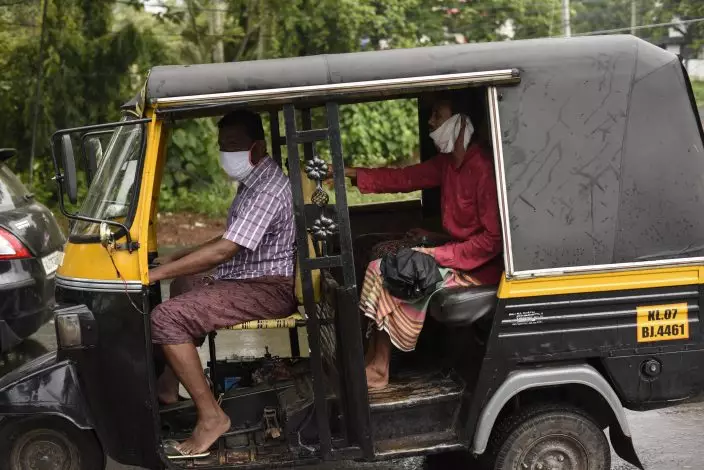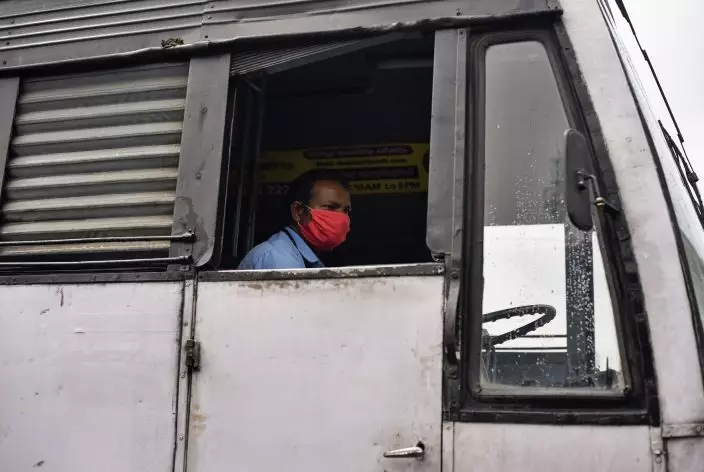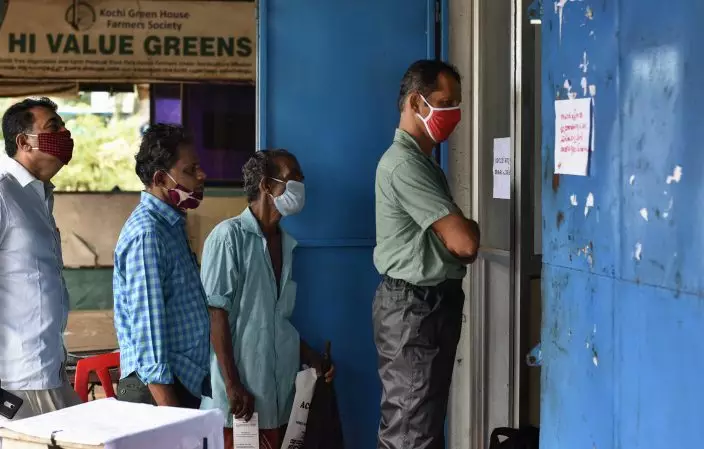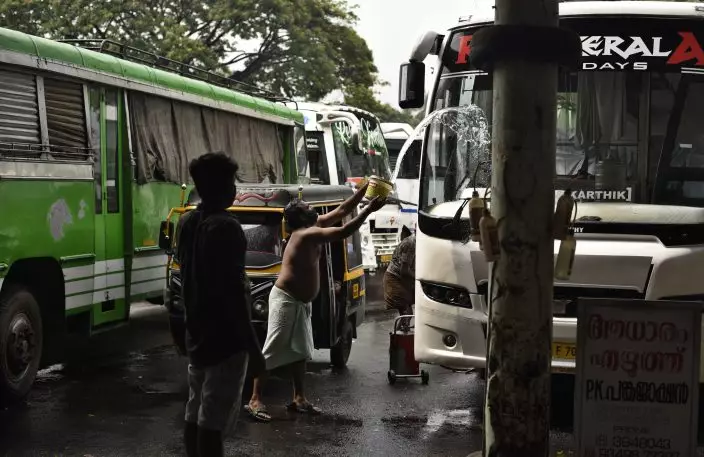People trickled outdoors and thin traffic returned to roads in some Indian states on Monday, a day after the federal government extended the nationwide coronavirus lockdown to May 31 but eased many restrictions to restore economic activity.
Small shops and other businesses were reopened in several states, including the capital, New Delhi, where the movement of public transport led to some traffic snarls. E-commerce companies started to deliver goods, including those considered nonessential, to places outside containment zones.
Metro services, flights, schools, shopping malls, colleges, hotels and restaurants, however, continued to remain shuttered nationwide.

People wearing masks ride on a auto-rickshaw during extended lockdown in Kochi, southern Kerala state, India, Monday, May 18, 2020. India on Monday saw a slow trickle of people returning outdoors and thin traffic on its roads in some states, a day after the federal government extended the nationwide coronavirus lockdown to May 31 but eased many restrictions to restore economic activity. (AP PhotoR S Iyer)
The ease in restrictions comes as the federal government gives states more control in deciding the nature of the lockdown and the power to classify areas as certain types of COVID-19 zones based on the spread and severity of cases.
India recorded its biggest single-day surge on Monday with 5,242 new cases of the coronavirus and 157 deaths. India has confirmed a total of more than 96,000 cases, the most in Asia, including 3,029 deaths.
Most of the cases have been in the major cities, with Mumbai, India's financial hub and home to Bollywood, registering almost 20% of the total infections.

A driver wearing a mask parks his bus after a special trip for government employees during extended lockdown in Kochi, southern Kerala state, India, Monday, May 18, 2020. India on Monday saw a slow trickle of people returning outdoors and thin traffic on its roads in some states, a day after the federal government extended the nationwide coronavirus lockdown to May 31 but eased many restrictions to restore economic activity. (AP PhotoR S Iyer)
But rural villages across India are also seeing an increase in cases as migrant workers continue to swell up the numbers in eastern states like Bihar and Odisha.
Authorities are largely attributing the surge in infections in these states to the return of hundreds of thousands of migrant workers who had to leave cities and towns where they had toiled for years building homes and roads after they were abandoned by their employers.
India’s lockdown was introduced on March 25 and has been extended several times. On May 4, India eased lockdown rules and even allowed migrant workers to travel back to their homes, a decision that has resulted in millions of people being on the move for the last two weeks.

People wearing masks line up to update their details for Aadhar, a government identity card during extended lockdown in Kochi, southern Kerala state, India, Monday, May 18, 2020. India on Monday saw a slow trickle of people returning outdoors and thin traffic on its roads in some states, a day after the federal government extended the nationwide coronavirus lockdown to May 31 but eased many restrictions to restore economic activity. (AP PhotoR S Iyer)
Caught off guard by the large-scale displacement, Prime Minister Narendra Modi’s government recently ordered special trains to take migrant workers, students and others stranded by the lockdown to their home states after mounting pressure from the opposition.

A private tour operator cleans his bus before taking migrant workers to the eastern state of Orissa in Kochi, southern Kerala state, India, Monday, May 18, 2020. Thousands of migrant laborers have been returning to their villages after losing jobs because of a countrywide lockdown imposed in late March to contain the spread of the coronavirus. India on Monday saw a slow trickle of people returning outdoors and thin traffic on its roads in some states, a day after the federal government extended the nationwide coronavirus lockdown to May 31 but eased many restrictions to restore economic activity. (AP PhotoR S Iyer)


